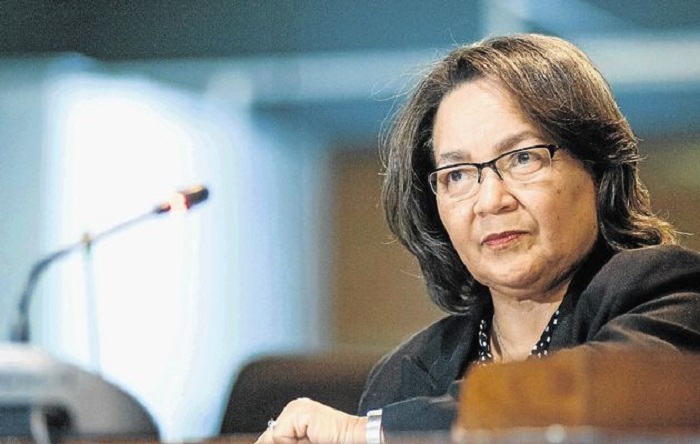Craig Kesson, the executive director in Cape Town Mayor Patricia de Lille’s office, got hold of around 1 000 confidential forensic reports, which contained details of probes into councillors and other officials, without proper permission.
City manager Achmat Ebrahim made this claim in response to allegations levelled against him by Kesson.
Ebrahim also claimed that Kesson gave an instruction that five years’ worth of forensic reports be seized so that he could send them to unauthorised people and use the reports to investigate Ebrahim and other senior managers, which Ebrahim said was unlawful.
The City held a confidential special council meeting on Tuesday.
The council unanimously resolved that the City’s audit and performance audit committee be instructed to appoint an independent investigator to probe allegations against Kesson, Ebrahim and Melissa Whitehead, the commissioner of the transport and urban development authority.
After the meeting, documentation submitted to the council was made public.
These documents have laid bare mistrust and infighting within the City.
One of the documents said Kesson made allegations of misconduct, relating to disciplinary regulations for senior managers, against Ebrahim.
It said Kesson served a copy of his complaints to Ebrahim.
Ebrahim was given the opportunity to respond to Kesson’s complaints against him and did so to De Lille.
The document detailing Kesson’s complaints and Ebrahim’s responses is dated November 16 and signed by De Lille.
One of several submissions Kesson made was that on September 12, Ebrahim summoned him to a meeting where he told Kesson that he was removing the probity function from him with immediate effect.
Forensic reports
Kesson alleged this was because of his instruction, on September 7, to the portfolio manager of probity “to seize all forensic reports for the past 5 years”.
However, Ebrahim hit back saying that Kesson did “not appreciate the implications of his instruction” on September 7.
Ebrahim has also questioned the motive behind Kesson’s instruction to have the reports seized and whether it really was to conduct a due diligence exercise.
“It is clear that the purpose of this exercise was to disseminate such forensic reports to unauthorised persons, to investigate me and a senior manager, which action by its very nature is unlawful,” Ebrahim said.
He emphasised that authority to investigate certain City staff, including the city manager and any executive director, was a decision that should be taken by the full council.
Confidential city reports ‘distributed’
“In this fashion, he took possession of what amounts to approximately 1 000 confidential forensic investigation reports,” Ebrahim said, according to the document.
“These forensic investigation reports included reports relating to councillors and officials of the City of Cape Town municipality, without the requisite authority.”
Ebrahim said neither Kesson nor the probity portfolio manager, who was also the acting chief of forensics at the time, had obtained permission from him or the city speaker who were the delegated authorities.
“I understand that these forensic reports were scanned and uploaded on a number of external storage devices and subsequently distributed to inter alia the Manager: Support Services of (Kesson) and the Portfolio Manager. Probity at approximately 22:30 on the evening of September 14,” Ebrahim said.
Haphazard actions and risk to the city
He said had permission been requested from him or the City Speaker to access the forensic reports, they would have considered several factors including the risk to the City.
“I would not have given authority, as such seizure actually occurred in an unprofessional and haphazard manner, with great risk to the City,” Ebrahim said.
He said the risk had materialised in that a Democratic Alliance member of Parliament, who was not a member of the city council, contacted a staff member of the municipality via phone and enquired about a specific forensic report.
“It is clear from such discussion that the said member of the DA was in possession of forensic reports and at the very least in possession of the two forensic reports,” Ebrahim said.
The DA member had several details about the report and wanted to know about the background of each of the signed forensic reports.
‘No authorisation’
“In this regard, it can be confirmed that neither the City Manager nor the Speaker authorised the disclosure of such information,” Ebrahim said.
The matter was submitted to the council for consideration and a decision.
If council believed an act of misconduct had been committed, it was recommended that De Lille appoint an independent investigator within seven days to probe the “perceived misconduct”.
It was recommended the allegation be dismissed if the council had found there was no evidence to support the allegation of misconduct.
[Source: News24]





 WhatsApp us
WhatsApp us 

